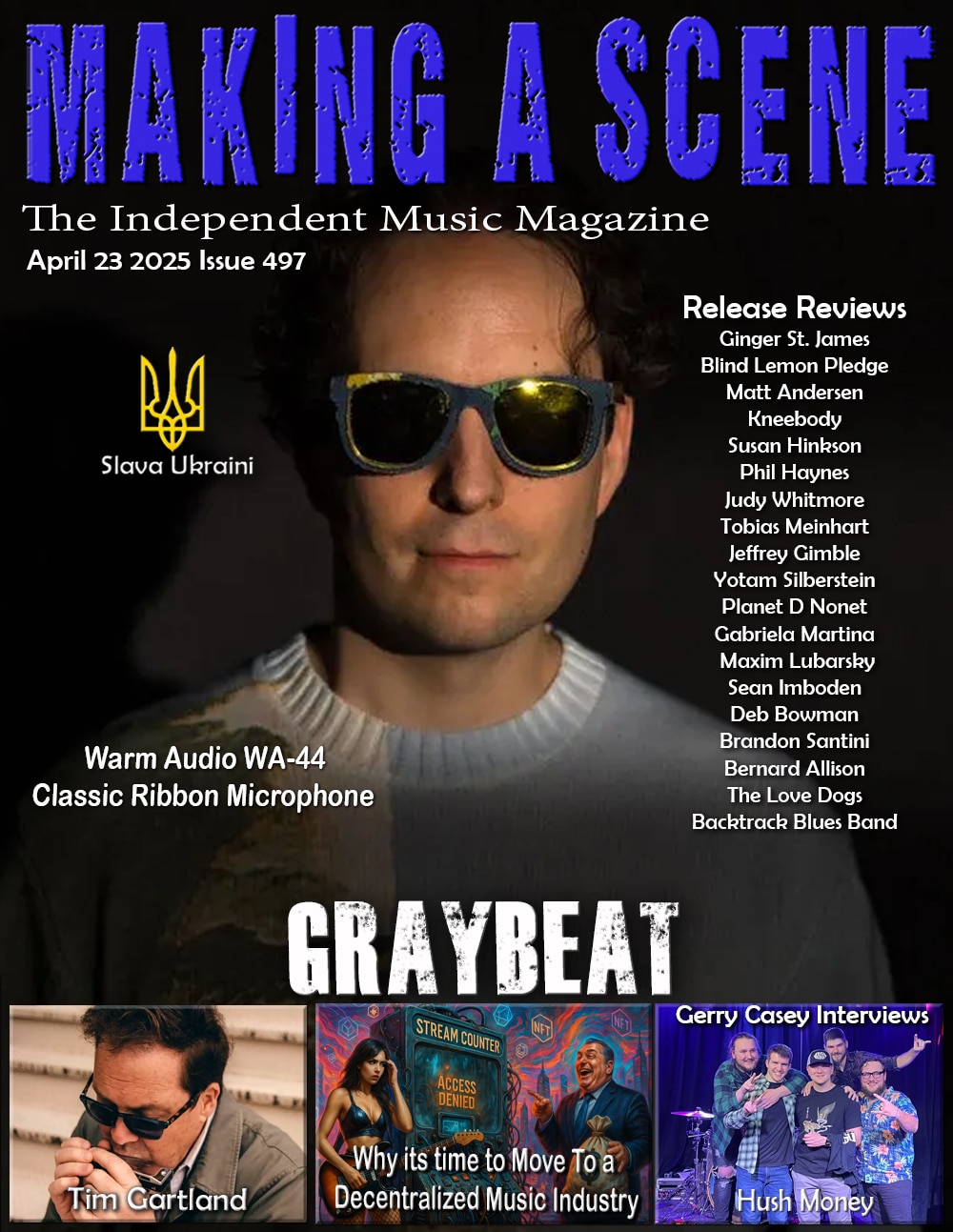Chet Doxas You Can’t Take It With You
You Can’t Take It With You
Whirlwind
Tenor saxophonist Chet Doxas leads a drumless trio featuring bassist Thomas Morgan and pianist Ethan Iverson for You Can’t Take It With You, his twelfth album as leader or co-leader. Doxas plays in another esteemed band, Riverside, with his brother Jim and Dave Douglas and while on tour in Europe had time to chat with Carla Bley and Steve Swallow, mentioned how impressed he as with their latest trio album with saxophonist Andy Sheppard, 2020’s Life Goes On, which we coincidentally covered on these same pages. So, coverage of this one is a natural, right?
Doxas followed the same instrumental blueprint after he had taken their advice about starting his own trio and composing one song a month. He chose two of the best, the minimalist-oriented (driver of The Bad Plus) pianist Ethan Iverson and in-demand bassist Thomas Morgan, favorite of Bill Frisell and many others. Doxas, originally from Montreal and Brooklyn resident for almost 10 years, not only recorded this album but ten “live off the floor” videos of each track by top cinematographer Graham Willoughby.
They begin with the title track, introducing Doxas’ beautiful rich and deep tenor tone in a swinging tune that, like most of the album, blends melody with a subtle edginess. Doxas then distills Lester Young’s gift for rhythm in a spare, minimalist, deceptively repetitive piece entitled “Lodestar.” Here, and throughout most of the album, each player seems to play only the necessary notes rather than dazzle with clusters or rapid runs. This is certainly emblematic of Iverson’s style as best exemplified in “Part of a Memory.” Prior to that we hear “Cheryl and George,” named for his parents. In the liners where Doxas provides notes for each piece, here is an example of his insightful approach, “It’s based on the chord changes and structure of ‘Body and Soul.’ Ethan and I play a unison melody throughout most of the written theme, while Thomas improvises. Following this theme, we improvise collectively before restating the melody to conclude. Playing with the balance of these role sis meant to represent two souls intermingling, playing and enjoying a life filled with love and mutual respect.”
Two of the most striking pieces come squarely in the middle of the album with the playful, imaginatively rendered “Twelve-Foot Blues,” inspired by the humor of Mark Twain, and the “Mark Two” which denotes two fathoms, safe passage for the steamboat. Hence, its riverboat feel. That’s followed by the epic, noirish, darkly dissonant “The Last Pier” as if a detective is trying to solve a cold case that has bothered him for years.
The aptly named “Soapbox” with its frantic “I’ll play over you” approach came from watching late night news with four talking heads spouting off at the same time. With wit, Doxas has Iverson craft a patriotic outro, like the kind you hear when a TV station signs off at 3 AM. The fun continues with the fluid “Up There in the Woods” which nods to spirit of the inventive Jimmy Guiffre’s trio with guitarist Jim Hall. Here the tenorist blows a series of lyrical lines as Iverson comps and Morgan stays steady. “All the Roads” begins so mysteriously that we are grateful to have the liners that point us to the inspiration behind it which is none other than TV’s Fred Rogers. Doxas was struck by an occasion when instead of accepting an award with the usual “thank you” speech, Rogers asked everyone in attendance to take the time to sit in silence and think about all the people that had helped them along. So. the one note that he plays is for all who supported him, and he also requested Iverson and Morgan to play their notes in synch with their own breathing as a meditative way of being grateful to all who have helped. The sound of breathing graces the outro. The inspiration for the closer, “View from a Bird,’ is a painting of Joan Miro that struck Doxas while visiting the Reina Sofia Museum in Madrid. Close listening reveals the bird call in the first third of the piece.
These are three masters at work, delivering unexpected melodies and rhythms at seemingly every turn. There are edgy moments that veer on ‘free jazz’ improvisation but it’s all of part of Doxas’ finely crafted work, a process that he describes as composing as scores to scenes that he imagines in his head. Quite an imagination, at that. (Note: This makes me want to revisit the Bley, Swallow, Sheppard album too).
- Jim Hynes
Buy Us a Cup of Coffee!
Join the movement in supporting Making a Scene, the premier independent resource for both emerging musicians and the dedicated fans who champion them.
We showcase this vibrant community that celebrates the raw talent and creative spirit driving the music industry forward. From insightful articles and in-depth interviews to exclusive content and insider tips, Making a Scene empowers artists to thrive and fans to discover their next favorite sound.
Together, let’s amplify the voices of independent musicians and forge unforgettable connections through the power of music
Make a one-time donation
Make a monthly donation
Make a yearly donation
Buy us a cup of Coffee!
Or enter a custom amount
Your contribution is appreciated.
Your contribution is appreciated.
Your contribution is appreciated.
DonateDonate monthlyDonate yearlyYou can donate directly through Paypal!
Subscribe to Our Newsletter
Discover more from Making A Scene!
Subscribe to get the latest posts sent to your email.















































